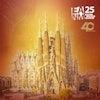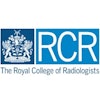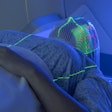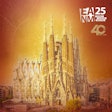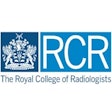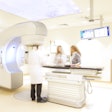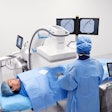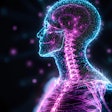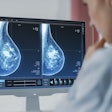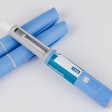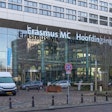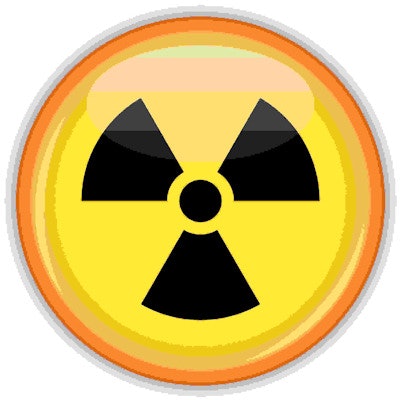
The internet often harbors inaccurate information regarding CT radiation dose, with online media outlets aimed at the lay public leading the way, according to a new Irish study.
After combing through more than 1,000 online pages providing information on CT radiation dose, researchers from Cork University Hospital in Ireland found that more than 40% of these internet sources were not entirely accurate (Journal of the American College of Radiology, 24 October 2017). An even higher percentage of online posts contained misleading or inaccurate information.
"The overall accuracy of information available online to patients about CT radiation dose is variable in its accuracy and completeness," lead author Siobhan O'Neill, PhD, told AuntMinnieEurope.com in an email. "Sources have a tendency to overemphasize the negative effects of radiation, often using outdated radiation dose data and failing to mention that information regarding the potential harmful effects of radiation is often extrapolated from nuclear disaster data and may not be entirely appropriate."
Patients prefer the internet
 Siobhan O'Neill, PhD, from Cork University Hospital.
Siobhan O'Neill, PhD, from Cork University Hospital.As many as 60% of internet users search for health information online, and for most people, the information they encounter affects their health-related behaviors, according to the researchers. One of the key interests of patients has been the health effects of CT radiation.
"Given that a lot of media attention has been drawn to radiation dose from CT in recent years, much of it negative, we wanted to see what patients were being exposed to online in terms of information and guidance," O'Neill said.
Namely, how reliable is this information, and how closely does it mirror the facts and guidelines established by highly regarded medical sources?
To assess the quality of health information online, the researchers extensively browsed the internet using Google. They chose to target information specifically tied to CT radiation dose, due to mounting concerns over its negative impact on patient health expressed by patients in person as well as on social media.
Their search covered all content in the first 100 webpages of 14 key phrases. The words represented the broad range of terms used by patients seeking to understand exposure to CT radiation, such as "CT cancer," "CT scan," "CT radiation dose," "CT radiation exposure," "CT dangers," and "CT scan benefit."
The group then used an RSS webfeed search technique with Google Alerts to automatically and continuously evaluate new content posted online related to those same 14 phrases from March to June 2014.
Guidelines available in the American College of Radiology (ACR) Patient and Family Radiation Safety Resource List and the ECR EuroSafe Imaging website served as the standard of information accuracy. Two of the senior authors used these standards to gauge the accuracy of the information and categorize it as "completely accurate" (consistent with the standards), "somewhat accurate" (correct but misleading), or "inaccurate" (factually incorrect).
Not accurate enough?
Out of the 1,400 webpages loaded from Google searches, 290 turned out to be relevant but offered considerable variation in accuracy. Of the 1,943 new posts tracked by Google Alerts, 136 were relevant.
| Accuracy of CT radiation dose information online | |||||
| Accuracy | Google search webpages | Google Alerts posts | |||
| Completely accurate | 58.6% | 18.4% | |||
| Somewhat accurate | 28.6% | 72% | |||
| Inaccurate | 12.8% | 9.6% | |||
Websites found through Google searches contained information that was completely accurate less than 60% of the time, and not even 20% of the posts identified via Google Alerts were completely accurate.
The quality of information depended on the search terms used, where specific terms such as "CT radiation dose" generated webpages with more relevant and accurate information than broader phrases such as "CT scan." The phrase "CT dangers" prompted the highest number of inaccurate posts.
Another one of the chief determinants of information accuracy was the type of webpage it originated from: Completely accurate information appeared 98% of the time in peer-reviewed journals, 80% of the time in governmental sites, 70% of the time in educational sites, and 12.5% of the time in discussion forums. Media pages were somewhat accurate 83% of the time, but associated forums, blogs, and patient advocacy sites were inaccurate 50% of the time, with only one completely accurate post in their midst.
"Blog and media websites often made overinflated claims about the negative effects of radiation and the harm incurred without scientific backup," O'Neill said.
The target audience also played a role in the quality of information, according to the researchers. All webpages and posts targeting medical professionals or the imaging industry were at least somewhat accurate and 90.6% of these webpages were completely accurate -- notably higher than the fewer than 50% completely accurate webpages directed at the public.
Knowledge is power
Patients continue to seek CT radiation information and even counsel from online sources because of the convenience that a simple, direct, and unfiltered search engine delivers, the researchers suggested. In contrast, most of the respected educational resources for medical imaging may not even be readable by a sizeable portion of the public because they surpass the sixth-grade reading level recommended by the American Medical Association (AMA).
The group acknowledged several limitations of the study, including the subjective assessment in determining accuracy, the use of a single search engine and language (English), and the lack of an official guideline for patient information regarding CT radiation dose.
Of all the websites aimed at the public, pages that were commercial, governmental, and educational were the most likely to be completely accurate. Other factors that contributed to accuracy included an identifiable author, references to peer-reviewed literature, and Health on the Net Foundation Code of Conduct (HON) certification, which is an accreditation for websites based on ethical criteria.
These factors may help guide patients on how to search the internet for information on a health-related topic and avoid misinformation, the researchers wrote.
"We as clinicians have a role to play in patient education and should direct patients to trustworthy and credible information sources, including those from designated bodies such as the RSNA, ACR, and [European Society of Radiology (ESR)] or patient-directed information from educational or governmental sources where the information is readable, accurate, and complete in terms of risks and benefits," O'Neill said.


